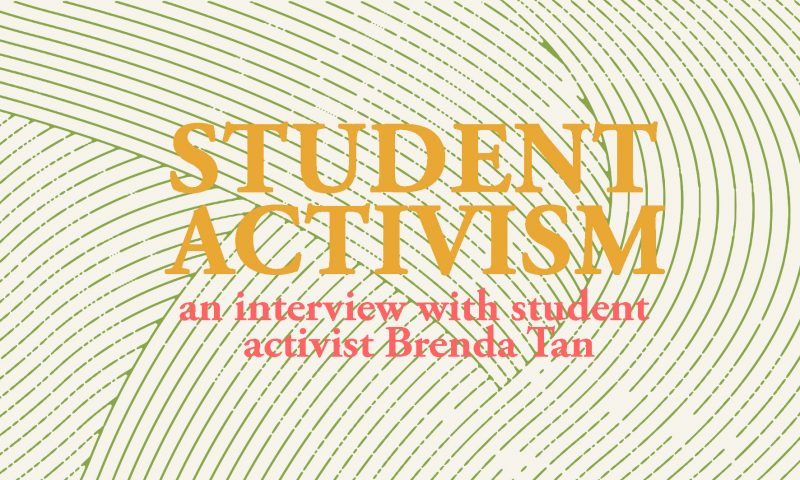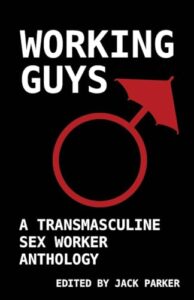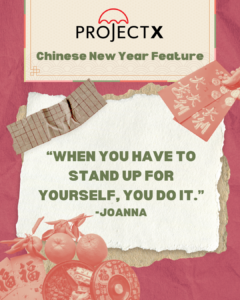1. Why sex workers’ rights?
Okay, a bit of a backstory here: I stay on campus in NUS, at College of Alice and Peter Tan. The college offers a seminar called “Hidden Communities”, where we learn about various ‘hidden communities’ in Singapore that don’t gain much public attention but whose members require special consideration from society. As such, we often have “outings” to observe and speak to members of various communities – and one of those outings were to Geylang. It was originally for the purpose of speaking to the migrant workers from Healthserve but we ventured beyond the compound and eventually to the lorongs.
I began to realise at that point how fascinated and curious I was about sex work (amongst the other vices witnessed). I was unfamiliar to Geylang, and grew frustrated at observing that everything seemed to happen only behind closed doors. I felt like I had no access to knowledge about sex work at all – no one told me anything much about it growing up, and it was considered shameful and taboo to ask.
The next week in class, we were told to focus on one specific community to research and share about, and my group chose the community of sex workers in Singapore as we realised how little we know about the community. I’d really like to think it wasn’t just a coincidence that we decided to champion sex workers’ rights. Instead,
I think all of us realised that the community of sex workers face much more discrimination and marginalisation (especially since they are more “visible” than other communities such as the LGBTQ community) for so many years and yet, nothing changes for the better because people in general do not talk, discuss or inform each other about the plight of sex workers.
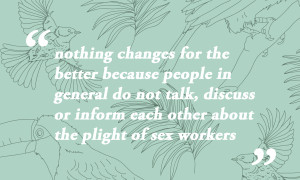
2. Did you encounter any pushback from the school/friends/professors while doing your research? Why or why not?
We fortunately did not, because of the environment we were in and the fact that everyone was focusing on a different community – single parents, the handicapped, the deaf, etc…
3. What was the most eye-opening thing you discovered while doing your research? How did it challenge your preconceptions of the sex worker community in Singapore?
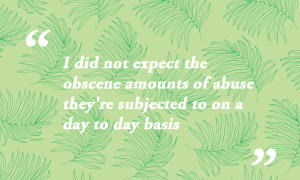
The most eye-opening thing, for me, was the fact that the Singapore law was so confusing – even for university students, so we couldn’t possibly imagine how difficult the law made it for sex workers to make their livelihood. All of the situations and personal stories of the sex workers also shocked me because I did not expect the obscene amounts of abuse they’re subjected to on a day to day basis. I used to think sex work was something other women did as a last resort, but now I know that sex work is also work and that it isn’t fair for them to be treated as such for doing their job when I myself am praised and respected for my job as a student. We are all made of flesh and bone and shouldn’t be treated so drastically different simply because of our circumstances.
4. Sex workers’ rights is a controversial and intriguing topic, especially in squeaky clean Singapore; what was the most asked question your friends, peers, or professors asked you about your research experience?
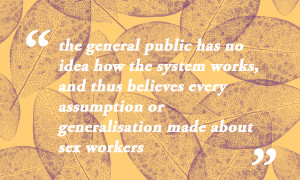
Surprisingly, a lot of people asked about how brothels work and why “freelance” sex workers don’t apply to work in a brothel so that they can do their job without breaking the law/soliciting. It was then when I realised that most of us don’t seem to realise the amount of politics and hierarchism that permeates the sex work industry – much like every other industry there is. Their questions go to show that such basic knowledge and understanding about the sex work industry doesn’t reach the masses and that the general public has no idea how the system works, and thus believes every assumption or generalisation made about sex workers.
5. Why do you think students should care about the sex workers’ rights movement?
I think a better question to ask is, why not?
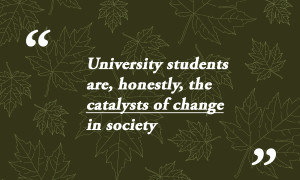
University students are, honestly, the catalysts of change in society. I mean, that’s how I feel. We’re decently sheltered, we’re old enough for a fair share of autonomy and freedom, we’re receiving world-class education, we’re reaping the benefits of having knowledge and understanding about the world… Why shouldn’t we put that knowledge and the facilities/opportunities around us (lessons, projects, classmates, peers, neighbours, exchange programmes, lecturers…) to good use and initiate discussion and provoke thought? I am privileged enough to be able to receive a university education – it’s therefore my duty to at least recognise that some others may not be as privileged as me, and AT LEAST TRY to help, in as little or many ways as possible, to make things right and to make people treat each other equally as one should.
6. Historically, students have been at the forefront of major civil rights movements (the Umbrella Revolution, the LGBT movement, the Climate Change movement, etc). Why do you think students are so pivotal to societal progress?
In addition to what I said in the previous question, I also think it’s because students are usually on the younger side – thus more energetic and idealistic, and don’t have as many commitments as working adults do. The spare time and energy really helps in one’s ability to daydream. And sometimes, one gets inspired to work for our dreams and make it a reality. Maybe it’s also the added pressure that we younglings have to stick with what we’ve created, or allowed, for the next few decades. Haha. You gotta shape your home the way you’d like to live in.
7. What would you tell someone who wants to get involved in the sex workers’ rights movement but doesn’t quite know where to start?
I’d say, read articles on Project X! The journal me and my group chose to base our research upon, by Vanessa Ho, titled “The Right To Sexual Health” is really helpful too. That’s how I started. I also read interviews of people working with sex workers, or sex workers themselves to finally hear it from people who know and understand – none of that secondhand assumptions-disguised-as-knowledge nonsense. Watching Youtube videos on this topic may also help widen one’s perspective and gain a general understanding on the plight of sex workers. 🙂 There’s plenty more things one can do, and it doesn’t matter what or whose material is being read as long as it helps them gain a clearer insights on sex work in general.



